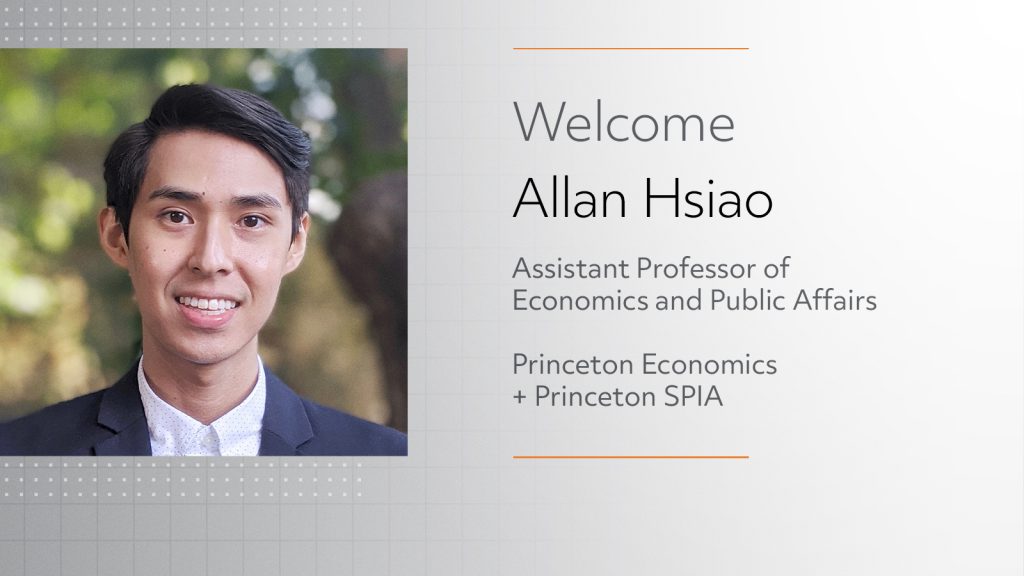Allan Hsiao–development economist with a focus on climate change–joins Princeton Economics
The Economics Department at Princeton University is excited to welcome Allan Hsiao as its newest faculty member. Hsiao, whose appointment is effective January 27, 2023, will hold a joint appointment with the Economics Department and Princeton’s School of Public and International Affairs (SPIA).
Hsiao’s research focuses on environmental and development economics broadly, with a particular focus on the causes and consequences of climate change.
“I’m especially interested in the uneven global impacts of climate change, including in lower-income countries that face disproportionate damages from hotter temperatures and more extreme weather events,” Hsiao said. “I’m also interested in how international organizations and global coordination might help address these disparities.”
Hsiao joins Princeton’s faculty after serving as a Saieh Family Fellow in Economics at the University of Chicago Becker Friedman Institute and completing a postdoctoral research fellowship at Princeton. He completed his Ph.D. in economics at MIT in 2021.
Can import tariffs reduce carbon emissions from palm oil production?
Hsiao’s research uses tools from the field of industrial organization to answer questions about climate change mitigation. In work that asks whether import tariffs on certain products can be an effective form of environmental regulation, Hsiao reveals a promising policy solution to carbon emissions generated by the production of palm oil and other products. Palm oil is a major contributor to deforestation and one of the largest sources of emissions globally.
Hsiao’s study showed that “coordinated, committed” tariffs by major importers can reduce carbon emissions as much as some domestic regulations–a finding he says emphasizes the importance of the Paris Agreement.
“Global coordination is key for curbing carbon emissions. International efforts like the Paris Agreement – if countries can deliver on their commitments – are an important step in the right direction.”
In other past work, Hsiao conducted spatial analyses of how democratization in Indonesia affected public investment in healthcare infrastructure and how a major school construction program in Indonesia affected student outcomes.
In more recent work, Hsiao is studying how rising sea levels will shape urban development. Looking at the Jakarta metropolitan area, which already experiences frequent flooding that will worsen over time, he’s hoping to understand how the city of more than 30 million people might adapt in the decades to come.
A new chapter for development and environmental economics at Princeton
At Princeton, Hsiao will also work alongside other global development experts through his affiliation with the university’s new Research Program in Development Economics (RPDE). RPDE was established in 2022 under the leadership of incoming professors Seema Jayachandran and Pascaline Dupas, and will serve as a global hub for frontier research in development economics at Princeton.
This semester, Hsiao is teaching a graduate course through Princeton SPIA on the economics of climate change policy.
“I’m excited to join a vibrant community of people interested in tackling the big challenges facing society today,” Hsiao said. “I’m also looking forward to teaching and working with the incredible students we have at Princeton.”
